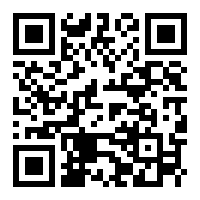Habits of Chinese Students Surprising to Americans
Top 5 Habits of Chinese Students that Might Surprise American Host Families
While it may be common knowledge that Chinese and American cultures have many differences, it is sill very easy to be surprised at how extreme these differences can be – especially after you begin living with a native of the other culture. Depending on how much prior exposure to American culture your guest has had, some of these habits may or may not be so relevant. But you might as well save yourself some initial shell-shock as a host and read these top five habits that might surprise you!

1. Mistakenly Rude Mannerisms
There are some very basic behaviors that are blatantly rude in the eyes of most Americans. Particular to the dinner table, burping aloud and slurping or eating loudly are two huge taboos. Ironically, in Chinese culture these mannerisms are means of praising the chef for his or her well-cooked meal. Spitting is another act that is common in China that is considered more practical than rude there. Moreover, don’t be offended if your guest does not reply your sneeze with a “bless you!”. This is not a common response in Chinese culture.

2. Gifts and Compliments Might Both Be Refused (At First…)
Don’t be offended if at first your Chinese guest is reluctant to accept a gift that you have offered them. This is customary and in fact polite under many situations in China. This concept goes hand-in-hand with refusing personal compliments, also. Accepting compliments about oneself is seen as somewhat narcissistic in Chinese culture, so these too might also be initially refused by your guest.

3. Forgetting to Leave a Tip
Just as it might come as a surprise to you that tipping is not customary in China, it will probably also be a surprise to your guest that it is rude to not tip in the US. In China, tipping is very uncommon, especially in restaurants. In fact, in the eyes of some it is considered disrespectful to leave a tip. So don’t be too afraid to remind your Chinese guest to leave a tip for their waiter or waitress next time they are out for a bite to eat.

4. Umbrellas on Sunny Days
While here in the US many of us try to squeeze in as much sun-basking time in as possible, among Chinese people it is very common to carry an umbrella as a shield from the sun on hot, sunny days. This is because in China, paler, whiter skin is often coveted over darker, tan skin, especially among women. This ideology stems from the historical assumption that those with tanner skin work more blue-collar jobs in the sun and are therefore less wealthy. So in the past, the whiter one’s skin is, the higher the social-class they presumably belong to. That means that to your student, an umbrella might be useful on both rainy and sunny days!

5. The Regularity of Napping
Mid-day naps, particularly around or after lunch time, are extremely common in China. This exercise should certainly not be perceived as a sign of being lazy or negligent. This practice originates from the thought that naps lead to better productivity and health. The post-lunch snooze is such a common practice that it even has its own name, “wujiao” (午觉) This is one you might want to even try out for yourself

